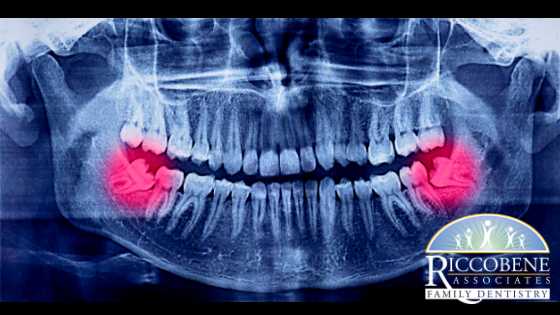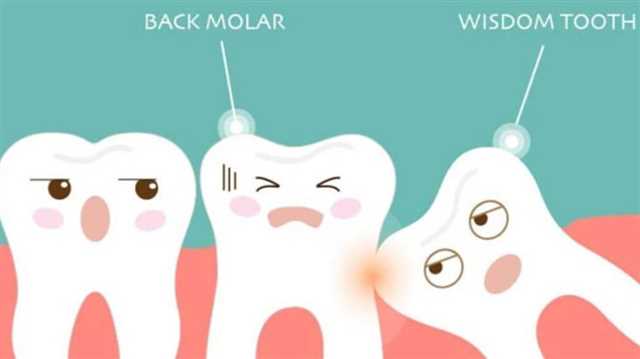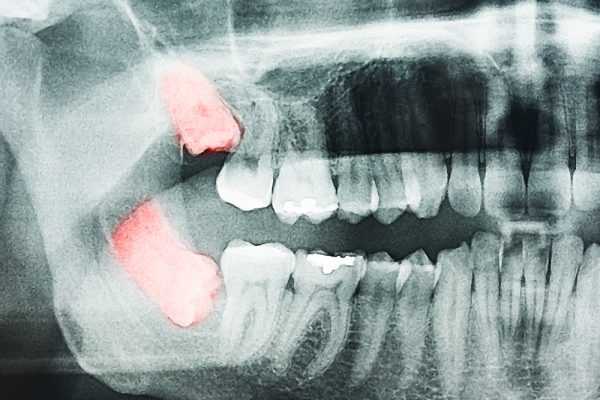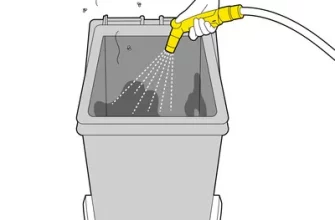
Wisdom teeth are the third set of molars that usually come in between the ages of 17 and 25. While some people experience no issues with their wisdom teeth, for others, problems can arise. These problems can occur when the wisdom teeth don’t have enough space to properly come in.
One common complication is when the wisdom teeth grow in at an angle and push against the nearby teeth. This can cause pain and can also lead to the misalignment of the surrounding teeth. Another issue that may happen is when the wisdom teeth only partially emerge from the gum surface, leaving a gap where bacteria can accumulate. This can result in infection and potential gum disease if not properly cleaned.
If you are experiencing any of these problems with your wisdom teeth, it is important to seek treatment. The type of treatment you may need will depend on the specific issues you are facing. For example, if your wisdom teeth are causing pain and misalignment, the dentist may recommend removing them. This procedure can be done under local anesthesia, and in some cases, the dentist may need to make a small incision in the gum to access the wisdom teeth.
Cleaning the area after a wisdom tooth removal is a crucial step in the recovery process. The dentist will provide you with a step-by-step guide on how to take care of the area, which may involve gently rinsing the mouth with a special syringe and using a soft-bristled toothbrush to clean the teeth. It’s important to avoid using any devices that can dislodge the blood clot and cause complications.
After the procedure, there may be some pain and discomfort in the area. It is common to experience swelling and soreness, which can be relieved with over-the-counter medication. However, if the pain persists or becomes worse over time, it is important to contact your dentist, as it could be a sign of infection or other complications.
Overall, while wisdom teeth problems can be uncomfortable and inconvenient, they can be easily overcome with proper treatment and care. It is important to consult with your dentist to determine the best course of action for your specific situation and to ensure that your wisdom teeth are not causing any further complications.
- Common Problems Associated with Wisdom Teeth
- Symptoms and When to See a Dentist
- Removal Process and Post-Operative Care
- The Importance of Wisdom Teeth
- The Function of Wisdom Teeth
- Common Problems with Wisdom Teeth
- Treatment Options for Wisdom Teeth
- Overcoming the Pain and Discomfort
- Conclusion
- Common Issues with Wisdom Teeth
- 1. Impacted Wisdom Teeth
- 2. Overcrowding
- 3. Decay and Gum Disease
- 4. Pain and Discomfort
- 5. Infections
- 6. Interference with Proper Biting
- 7. Difficulty in Cleaning
- 8. Delayed Healing Process
- 9. Complications during Extraction
- Signs and Symptoms of Wisdom Teeth Problems
- Treatment Options for Wisdom Teeth Problems
- Prevention and Maintenance Techniques
- 1. Regular Dental Visits
- 2. Proper Brushing Techniques
- 3. Flossing and Interdental Brushes
- 4. Mouth Rinsing and Irrigation
- 5. Wisdom Teeth Maintenance Tips
- Video:
- Wisdom Teeth Extractions RECOVERY TIPS (How To Heal Fast)
Common Problems Associated with Wisdom Teeth
Wisdom teeth, also known as third molars, are the last teeth to erupt in the mouth. They usually appear between the ages of 17-25. While some people experience no issues with their wisdom teeth, others may encounter various problems. Here are some common problems associated with wisdom teeth:
- Pain and irritation: Wisdom teeth may cause pain, discomfort, and irritation, especially if they don’t have enough space to fully emerge.
- Crowding and misalignment: Wisdom teeth can push against existing teeth, causing crowding and misalignment in the mouth.
- Infection and gum disease: The partially erupted wisdom teeth can create a small opening in the gum, leaving the area vulnerable to infections and gum disease.
- Tooth decay and cavities: Wisdom teeth are hard to clean properly, increasing the risk of tooth decay, cavities, and other dental problems.
- Cysts and tumors: In rare cases, wisdom teeth can develop cysts or tumors, which may require surgical removal.
Symptoms and When to See a Dentist
If you experience any of the following symptoms, it’s important to see a dentist or oral surgeon:
- Severe pain and swelling in the jaw.
- Redness and swelling of the gums.
- Bad breath or an unpleasant taste in the mouth.
- Difficulty opening your mouth.
- Fluid-filled sacs near the impacted teeth.
- Chronic headaches or jaw pain.
Removal Process and Post-Operative Care
If your dentist or oral surgeon recommends wisdom teeth removal, here is a step-by-step process:
- The surgeon will assess your situation and determine if extraction is necessary.
- If removal is required, the dentist will provide instructions on how to prepare for the procedure, including any pre-operative medications or fasting requirements.
- During the procedure, the surgeon will use local or general anesthesia to ensure that you’re comfortable and pain-free.
- The dentist will make an incision in the gum tissue and remove the wisdom tooth, sometimes in pieces if necessary.
- After the tooth extraction, the surgeon may place sutures and use a small bandage to promote healing.
- Post-operative care typically includes gentle rinsing with saltwater, avoiding excess pressure on the surgical area, and following any additional instructions provided by the dentist.
- It’s important to eat soft foods, avoid smoking, and practice gentle oral hygiene to aid the healing process.
- Most patients recover within a few days to a week, but it’s always important to consult with your dentist or oral surgeon if you experience any complications or have concerns.
Author: Amelia
The Importance of Wisdom Teeth
Wisdom teeth, also known as third molars, are the final set of teeth to develop in a person’s mouth. They typically emerge between the ages of 17 and 25, but not everyone will have them. It is estimated that about 35% of people are born without wisdom teeth.
While some people may have no problems with their wisdom teeth, for many, these teeth can cause a range of issues. Understanding the importance of wisdom teeth and how to deal with them is crucial for oral health.
The Function of Wisdom Teeth
The purpose of wisdom teeth is rooted in our ancestry. Our early ancestors had larger jaws that could accommodate this extra set of teeth. Wisdom teeth would help with chewing tough food, like roots, meat, and raw vegetation.
In modern times, however, the human jaw has evolved and become smaller. As a result, there is often not enough space in the mouth for these additional teeth. This can lead to a variety of problems.
Common Problems with Wisdom Teeth
When wisdom teeth do not have enough space to properly emerge, they become impacted. This means they are unable to fully break through the gumline. Impacted wisdom teeth can cause various issues, including:
- Pain and discomfort in the back of the mouth
- Inflammation and infection of the gums
- Crowding of other teeth, leading to misalignment
- Tooth decay and gum disease
These problems can be quite painful and may require prompt treatment.
Treatment Options for Wisdom Teeth

If you’re experiencing symptoms related to your wisdom teeth, it’s important to consult with a dentist or oral surgeon. They can assess the situation and determine the best course of action.
For some people, removing wisdom teeth is necessary to prevent further complications. Removal can be done using traditional methods or with the assistance of lasers, depending on the complexity of the case. In either case, the dentist will ensure the patient is comfortable throughout the process and will provide necessary guidance for post-removal healing.
Overcoming the Pain and Discomfort
While waiting for a dentist appointment and after wisdom tooth removal, there are various ways to alleviate pain and discomfort. These include:
- Taking over-the-counter pain medication, as recommended by the dentist
- Applying a warm, moist compress to the affected area
- Practicing good oral hygiene, including gentle brushing and rinsing with saltwater
- Avoiding hard and sticky foods that may irritate the healing tissue
It’s important to follow the dentist’s instructions for optimal healing. In some cases, the dentist may prescribe antibiotics to prevent or treat infection.
Conclusion
Wisdom teeth can be a source of pain and discomfort, but their importance goes beyond their function. Understanding the causes and symptoms of wisdom tooth problems can help individuals prepare for their removal and ensure proper healing. Regular visits to the dentist and good oral hygiene practices are essential for avoiding complications related to wisdom teeth.
Common Issues with Wisdom Teeth
Wisdom teeth, also known as third molars, are the last teeth to erupt in the mouth. While some people do not experience any problems with their wisdom teeth, others may face common issues that can cause discomfort and require treatment.
1. Impacted Wisdom Teeth
One common issue with wisdom teeth is impaction, which occurs when the teeth do not fully emerge from the gum line. This can cause pain, swelling, and infection in the area. In some cases, impacted wisdom teeth may need to be removed to alleviate these symptoms.
2. Overcrowding
When there is not enough space in the mouth for the wisdom teeth to properly align, they can cause overcrowding. This can lead to shifting of the other teeth and misalignment, necessitating orthodontic treatment to correct the issue.
3. Decay and Gum Disease
Wisdom teeth, due to their location at the back of the mouth, are difficult to clean properly. This can make them more prone to tooth decay and gum disease. Regular brushing, flossing, and dental check-ups are important to maintain oral health and prevent these problems.
4. Pain and Discomfort
Wisdom teeth can cause pain and discomfort, especially when they are erupting or impacted. This pain can radiate to the jaw and surrounding areas. Over-the-counter pain relievers, warm saltwater rinses, and applying ice packs can help alleviate these symptoms.
5. Infections
Infections can occur in the area around wisdom teeth, especially when they are impacted or partially erupted. Symptoms may include swelling, pain, pus discharge, and difficulty opening the mouth. Antibiotics and, in severe cases, oral surgery may be needed to treat the infection.
6. Interference with Proper Biting
Wisdom teeth that are not properly aligned can interfere with the bite, causing difficulty in chewing. This can lead to unnecessary strain on the jaw joint and result in jaw pain and headaches. In such cases, removal of the wisdom teeth may be recommended.
7. Difficulty in Cleaning
Wisdom teeth, being located at the back of the mouth, can be challenging to clean effectively using regular toothbrushes and floss. Exploring interdental brushes or water flossers may help reach these difficult areas and maintain proper oral hygiene.
8. Delayed Healing Process
After wisdom teeth extraction, the healing process may take time. Some soreness, swelling, and bleeding can be expected. Following the dentist’s instructions, taking prescribed medications, and maintaining proper post-operative care are important for efficient healing.
9. Complications during Extraction
In some cases, the extraction of wisdom teeth may have complications such as bleeding, nerve damage, or a dry socket. It’s important to follow the dentist’s post-operative instructions, avoid smoking, drinking through a straw, and eating hard or sticky foods to minimize the risk of these complications.
If you are experiencing any issues with your wisdom teeth, it is important to consult a dentist. They will assess the situation, recommend the appropriate treatment, and guide you through the process.
Signs and Symptoms of Wisdom Teeth Problems
- The most common sign of wisdom teeth problems is pain in the back of the mouth and jaw area.
- You may experience difficulty in opening your mouth fully.
- Swelling and redness of the gums around the wisdom teeth can indicate a problem.
- Bad breath can be a sign that there is an infection or decay present.
- If you notice a unpleasant taste in your mouth or discharge coming from the surgical site, it may be a sign of infection.
- Some people may also experience headaches or jaw stiffness.
- If you are having trouble chewing or biting down, it may be a sign that your wisdom teeth need to be removed.
- One of the more serious symptoms of wisdom teeth problems is the development of an abscess or cyst.
- In some cases, the operculum (the flap of gum that covers the partially erupted wisdom tooth) can become swollen and painful.
To know for sure whether you are experiencing wisdom teeth problems, it is always best to consult with a dental professional. They can examine your wisdom teeth and provide a proper diagnosis and treatment plan.
If you are experiencing pain or discomfort from your wisdom teeth, there are some temporary measures you can take to alleviate the symptoms:
- Gently rinse your mouth with warm saltwater to relieve inflammation.
- Apply a cold compress to the affected area to reduce swelling.
- Take over-the-counter pain medication as directed.
- Brush your teeth and gums gently, avoiding the surgical site.
It’s important to note that these measures are temporary and should not replace professional dental care. The only way to permanently alleviate wisdom teeth problems is through the surgical removal of the impacted or problematic teeth.
During the healing process after wisdom teeth removal, it’s essential to follow the instructions provided by your dentist or oral surgeon. This will help ensure proper healing and minimize the risk of complications.
Treatment Options for Wisdom Teeth Problems
- The proper treatment for wisdom teeth problems depends on the specific issue you are experiencing. Here are several common treatment options:
- Saltwater rinsing: Rinsing your mouth with warm saltwater can help reduce swelling, clean the area, and alleviate discomfort.
- Tooth extraction: If your wisdom teeth are causing difficulty or pain, your dentist may recommend extracting them. This is often the most effective solution.
- Operculectomy: In cases where the soft tissue covering the wisdom tooth (operculum) is causing problems, a minor surgical procedure known as operculectomy may be performed to remove the tissue.
- Antibiotic treatment: If there is an infection present, your dentist may prescribe antibiotics to help clear it up before proceeding with any other treatment.
- Laser treatment: Some dentists use lasers to assist with the removal of wisdom teeth, which can help reduce pain, swelling, and healing time.
- Gentle cleaning: It’s important to keep the area around wisdom teeth clean to prevent cavities and gum disease. Use a soft-bristled toothbrush and gentle circular motions to brush the area.
- Regular dental check-ups: Seeing your dentist regularly allows them to assess the condition of your wisdom teeth and detect any potential problems early on.
It’s important to follow your dentist’s guidance throughout the treatment process. They will be able to guide you on how to care for your mouth during the recovery period and what to expect after the procedure.
Remember, not all wisdom teeth problems require treatment. Your dentist will assess your specific situation and recommend the most appropriate course of action.
Prevention and Maintenance Techniques
Preventing problems with wisdom teeth is always better than dealing with them later. By taking some simple steps and maintaining good oral hygiene, you can minimize the risks associated with wisdom teeth. Here are some techniques to help you prevent problems:
1. Regular Dental Visits
It is normal to have wisdom teeth, but the dentist can evaluate your specific situation and take appropriate measures if needed. Regular dental visits allow your dentist to monitor the development of your wisdom teeth and provide guidance accordingly.
2. Proper Brushing Techniques

Using the right techniques and tools for brushing is essential for maintaining proper oral hygiene. Use a soft-bristle toothbrush and gently brush your teeth in a circular motion. Pay special attention to the back of your mouth, where your wisdom teeth are located.
3. Flossing and Interdental Brushes
Flossing and using interdental brushes help clean between your teeth and remove any food debris that may be trapped. This helps prevent cavities and maintain healthy gum tissue around your wisdom teeth.
4. Mouth Rinsing and Irrigation
Rinsing your mouth with an antimicrobial mouthwash or using an irrigation device can help remove bacteria and food particles from hard-to-reach areas. Follow the instructions provided by your dentist or dental hygienist for proper use.
5. Wisdom Teeth Maintenance Tips
If your wisdom teeth have already erupted or you’ve had them removed, there are some additional tips to help maintain good oral health:
- Take pain medication as prescribed by your dentist.
- Avoid using a toothbrush near the surgical area for the first week.
- If you have sutures, follow your dentist’s instructions on how to care for them.
- Eat soft foods and avoid hard or sticky foods that can cause damage.
- Avoid smoking or using tobacco products, as they can slow down the healing process.
- Use a gentle brushing technique and be careful around the surgical area.
- If bleeding occurs, gently bite down on a gauze pad or a moist tea bag to help control it.
- If your dentist recommends it, use an antimicrobial mouthwash to keep the area clean.
Remember, prevention is always better than cure. By following these prevention and maintenance techniques, you can reduce the chances of experiencing problems with your wisdom teeth and maintain good oral health.








